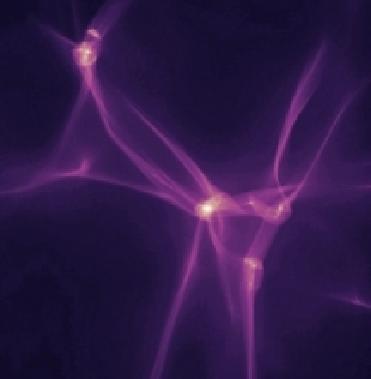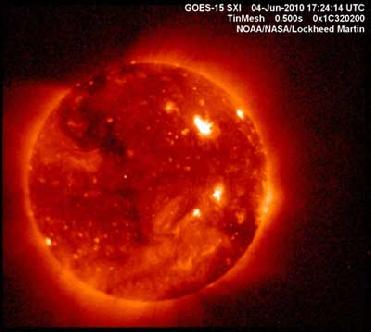
LONDON (BNS): A new research carried out by two Durham University scientists has questioned the existence of dark matter in the Universe.
The researchers, after giving a fresh look at the observations made by the Wilkinson Microwave Anisotropy Probe (WMAP) satellite in 2001 to study the remnant heat from the Big Bang, have concluded that “errors in its data may be much larger than previously thought.”
Their finding appears in the Monthly Notices of the Royal Astronomical Society.
The WMAP satellite had measured the differences in the Cosmic Microwave Background (CMB) radiation, the residual heat of the Big Bang that fills the Universe and appears over the entire sky. The angular size of the ripples in the CMB is thought to be connected to the composition of the Universe.
The WMAP data showed that the ripples were about twice the size of the full Moon. On the basis of the finding, scientists had concluded that the Universe is made up of 4% ‘normal’ matter, 22% ‘dark’ or invisible matter and 74% ‘dark energy’.
However, British scientists Utane Sawangwit and Professor Tom Shanks, using astronomical objects that appear as unresolved points in radio telescopes to test the way the WMAP telescope smoothes out its maps, have found that the smoothing is much larger than previously believed, thereby suggesting that its measurement of the size of the CMBR ripples is not as accurate as was thought.
If true this could mean that the ripples are significantly smaller, which could imply that dark matter and dark energy are not present after all.
“CMB observations are a powerful tool for cosmology and it is vital to check for systematic effects. If our results prove correct then it will become less likely that dark energy and exotic dark matter particles dominate the Universe. So the evidence that the Universe has a ‘Dark Side’ will weaken!”, says Professor Shanks.
Further analysis of the CMB structure has led the scientists to conclude that the Universe is not expanding as rapidly as it is believed to be due to the presence of dark energy.
Prof. Shanks concludes “Odds are that the standard model with its enigmatic dark energy and dark matter will survive - but more tests are needed. The European PLANCK satellite, currently out there collecting more CMB data will provide vital new information and help us answer these fundamental questions about the nature of the Universe we live in.”
 Previous Article
Previous Article Next Article
Next Article













The Indian Air Force, in its flight trials evaluation report submitted before the Defence Ministry l..
view articleAn insight into the Medium Multi-Role Combat Aircraft competition...
view articleSky enthusiasts can now spot the International Space Station (ISS) commanded by Indian-American astr..
view article